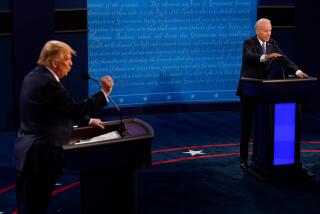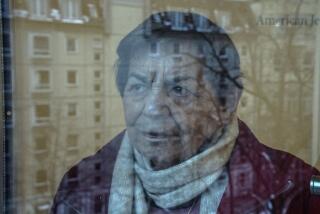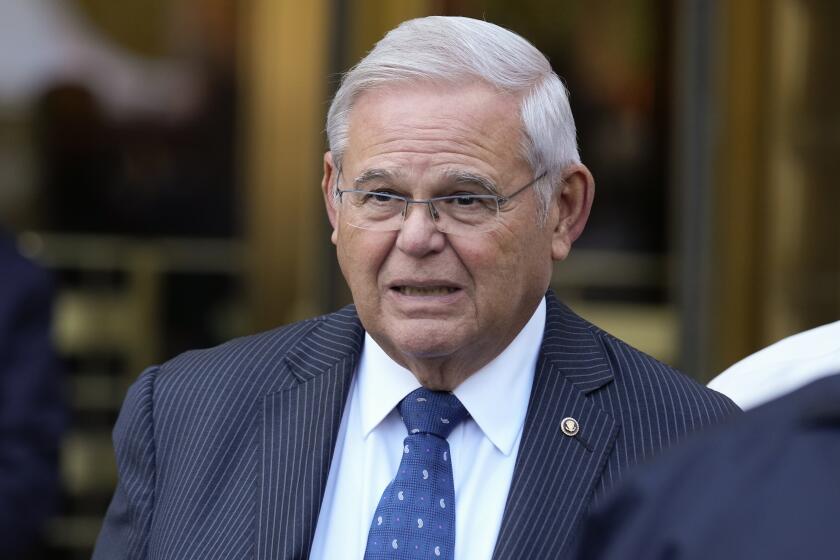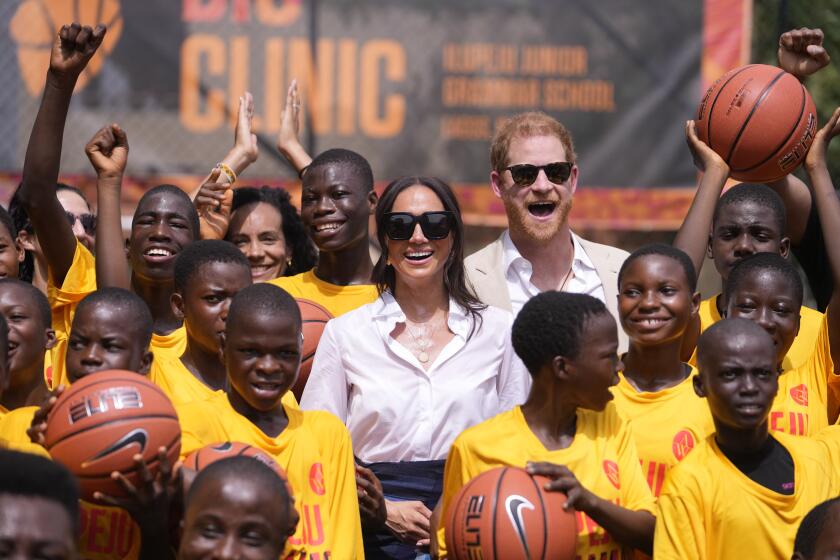Bush, Congress Salute Victory; Aid Promised
President Bush and members of Congress gleefully hailed Violeta Barrios de Chamorro’s surprise victory in Nicaragua’s presidential election Monday and promised that the United States will supply aid to rebuild her country’s economy, crippled by a decade of guerrilla war.
But U.S. officials also noted that Chamorro’s victory over leftist President Daniel Ortega brings forth a host of new problems--including serious concern that Ortega’s Sandinista Front may stage a coup d’etat or try to prevent the new president from taking office.
The Administration sent a message to Soviet President Mikhail S. Gorbachev seeking his help in encouraging the Sandinistas to give up power peacefully, officials said.
Bush and other officials also took elaborate care to praise Ortega--a man the President once derided as “an unwanted animal at a garden party”--for his election-night pledge to transfer power. The White House said Bush sent messages of congratulations to both Chamorro, for winning, and to Ortega for “his stated willingness to abide by the results.”
Despite those worries, the opposition win was also a major victory for the Administration, which gambled on the election as a way to solve the longstanding U.S. policy dilemma in Nicaragua. The previous Administration of President Ronald Reagan spent more than six years seeking to overthrow the Sandinistas by force, but Congress ultimately refused to fund the effort and it failed.
“The election process, by all accounts free and fair, is a credit to the people of Nicaragua . . . and that is a victory for democracy,” Bush told a meeting of the National Governors Assn. in the White House.
“We hope now for a peaceful transition, for the institutionalization of the democratic process in Nicaragua,” he said.
In a message apparently aimed at both the Sandinistas and the U.S.-backed Contras who fought to overthrow them, Bush said: “Given the clear mandate for peace and democracy, there is no reason at all for further military activity from any quarter.”
Added Secretary of State James A. Baker III: “We hope that all sides in this hotly fought contest will extend the hand of national reconciliation and cooperate together in rebuilding their country.”
But other officials noted that in Nicaragua, no ruling party has ever surrendered power peacefully since the country gained independence from Spain in 1838--and warned that militants in the Sandinista National Liberation Front may yet seek to reverse the results of the election by force.
“The most difficult problem may be the immediate period of transition from an authoritarian regime to a democratic government in a country that is still in a state of civil war,” said Bernard Aronson, assistant secretary of state for Latin America.
“We’re just not sure what the Sandinistas are going to do,” another official said, more bluntly. “When Ortega made his statement (promising to respect the results), he sounded like he was stunned. When they all regain consciousness in a day or two, are they still going to agree to step down?”
Chamorro is scheduled to be inaugurated in two months, on April 25.
In addition to seeking help from Gorbachev, officials said, the Administration is urging other Latin American governments to encourage Ortega to keep his promise and to remake the Sandinistas--who may still hold the largest single bloc of votes in Nicaragua’s legislature--as the country’s “loyal opposition.”
At the same time, they said, they will be advising Chamorro and her aides to reorganize the country’s police and military hierarchy, both strongholds of Sandinista influence.
Officials said they were also concerned about an array of other problems:
-- The nine-year-old guerrilla war and tough U.S. sanctions have virtually strangled Nicaragua’s economy; in 1988 the CIA estimated inflation at 16,000%, unemployment at 22% and per capita income at $610. On Monday, White House Press Secretary Marlin Fitzwater said Bush wants to lift the sanctions “as soon as it is feasible.” But other officials indicated that while the Administration may end its trade embargo soon, the U.S. policy of blocking loans to Nicaragua by international financial organizations may hold until Chamorro’s inauguration.
-- In Congress, both Democrats and Republicans called for direct financial aid to Chamorro’s government--but admitted they are not sure where to find the money. “Let’s not kid ourselves; we’re talking about big bucks,” said Senate Minority Leader Bob Dole (R-Kan.). “The United States certainly has an obligation to Nicaragua,” said Rep. Dante Fascell (D-Fla.), chairman of the House Foreign Affairs Committee. “ . . . (But) there isn’t enough money to provide all that is needed for all the budding democracies.” Next year’s $15-billion foreign aid budget is already stretched thin by commitments to Panama and the new democracies of Eastern Europe.
-- Chamorro is an untested leader, and her winning coalition, an uneasy union of 14 often-feuding parties, may tear itself apart over the spoils of victory. “Violeta is no Cory Aquino,” a former official said, referring to the embattled but politically skillful president of the Philippines. And the problem of keeping the opposition coalition together “could become a major problem,” a State Department aide said.
-- An estimated 10,000 Contras are still under arms, and they must now be persuaded that the time has come to give up their fight and seek employment at home. But some rebel leaders have vowed to resist any pressure to disarm, according to U.S. and Contra officials.
Asked on Monday whether the Administration had any words of congratulations for the rebels--whom officials once praised for making the election possible--State Department spokeswoman Margaret Tutwiler said: “We (are) for the voluntary repatriation of the Contras back into Nicaragua under safe and democratic conditions. This election obviously goes a long way toward safe and democratic conditions.”
Overall, however, the Administration was just beginning on Monday to work out the details of helping Chamorro survive the two-month transition period.
“We have to talk with Violeta and her team,” a senior official said. “We’ve got to think through how it all moves from here. We haven’t done any planning together with them. . . . We’ve put together a number of contingency papers, but you can’t strategize everything in advance.”
At the State Department, where some officials were still groggy from manning an election command post overnight, the mood was more dazed than jubilant.
Most aides had grimly predicted before the vote that the Sandinistas appeared likely to win. But Aronson, who had doggedly insisted for months that Chamorro would win, bustled around his office in a badly rumpled shirt, happily accepting congratulations from visitors.
“The elites have often been wrong in predicting how the people would vote,” he said.
Times staff writer Michael Ross contributed to this article.
More to Read
Start your day right
Sign up for Essential California for news, features and recommendations from the L.A. Times and beyond in your inbox six days a week.
You may occasionally receive promotional content from the Los Angeles Times.







